Apps Home
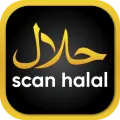
The Importance and Growth of Halal Product Awareness
In recent years, there has been a noticeable increase in the demand for halal products worldwide, and this trend shows no signs of slowing down. Halal, an Arabic term meaning permissible, not only pertains to food items but also other products like cosmetics and pharmaceuticals. The burgeoning interest in halal products can be attributed to the growing Muslim population, globalization, and a heightened awareness among consumers about the ethical standards and health benefits that halal certifications endeavor to guarantee. As the Muslim population is projected to grow significantly, the demand for halal products is expected to rise correspondingly, making halal certification an essential factor for manufacturers looking to tap into this lucrative market. The principles behind halal certification focus on ensuring that products are produced in accordance with Islamic law, which involves rigorous scrutiny of the supply chain, including sourcing, handling, and processing methods. For instance, animals intended for human consumption must be raised and slaughtered humanely, with full assurance that the products are devoid of any cross-contamination with non-halal substances. This meticulous attention to detail not only satisfies the religious mandates but also aligns with global trends toward ethically produced goods. Moreover, the growth is fueled by an increasing number of non-Muslim consumers who are drawn to the perceived superiority of halal products due to their quality, cleanliness, and ethical considerations. Companies that obtain halal certification can thus enhance their brand reputation and appeal to a broader consumer base, which is crucial in the competitive global marketplace.
How Technology is Revolutionizing Halal Product Verification
The intersection of technology and halal certification has revolutionized how consumers identify and verify halal products, providing unparalleled accessibility and convenience. One of the most innovative developments in this sphere is the creation of mobile applications like the Scan Halal app. This app simplifies the often daunting task of verifying halal status by allowing users to quickly scan the barcode of a product. Upon scanning, it analyzes complex ingredient information, identifying whether each component is derived from plant, animal, synthetic, or other origins, and cross-references this data with up-to-date halal certification information. Technology like this overcomes the limitations of traditional methods, which were primarily reliant on static printed materials and disconnected databases that could not quickly reflect changes in certification or ingredient sources. By using real-time data accessibilities, these apps offer consumers rapid insights, thus empowering them to make immediate purchasing decisions that are aligned with their dietary restrictions. Furthermore, such applications are not just limited to food products but extend to pharmaceuticals and personal care items, which may contain animal-derived components or alcohol. As the first of its kind, Scan Halal represents a broader trend where technology is a catalyst for advancing transparency and building trust within consumer communities. With continuous improvements and updates, these digital platforms ensure that users are always equipped with the latest information, thereby cultivating a more informed consumer base.
Implementing Halal Certification and Its Global Impact
Halal certification is not merely a set of guidelines but an intricate system that resonates with the values and beliefs of the global Muslim community. Implementing halal certification involves stringent audits and an exhaustive review of the processing techniques, ingredient sourcing, and supply chains to confirm compliance with Islamic dietary laws. Responsible for this thorough process are specialized certifying bodies, which are often recognized by international halal accreditation organizations. These bodies conduct systematic checks to ensure that the entire lifecycle of a product, from raw material acquisition to manufacturing and packaging, adheres to halal standards. The implications of halal certification extend beyond product safety and consumer confidence; it also plays an essential role in international trade. For example, countries with a significant Muslim populace regulate imports based on halal certification, providing assurance that imported goods meet local cultural and religious requirements. This regulatory framework is vital for businesses seeking entry into these markets, making halal certification a strategic necessity for international trade compliance. On a global scale, as many non-Muslim-majority countries begin to recognize the benefits of stringent halal regulations, we see an increasing alignment of halal practices with global food safety standards. This reinforces the position of halal-certified products on the international stage, thereby influencing trade policies and encouraging multinational businesses to adopt comprehensive halal strategies in their operations.
The Role of Community and Collaboration in Halal Innovation
The advancement of halal-conscious consumerism can be largely attributed to the collaborative efforts of halal certification bodies, governmental organizations, and industry stakeholders. This collaborative model fosters innovation by encouraging the development of products that are tailored to meet the specific needs of the Muslim consumer. For instance, Scan Halal's initiative to provide accessible technology solutions for halal verification marks a significant milestone, signifying the fruits of collective innovation and community support. Community engagement is integral because it leverages diverse perspectives and expertise to craft solutions that address common challenges faced by halal consumers — such as misunderstanding ingredient labels or unfamiliarity with the complexities of global food production systems. Shifting consumer expectations require agile responses, encouraging manufacturers to explore innovative alternatives such as sourcing plant-based synthetic substitutes for traditionally animal-based or questionable ingredients. Collaborative efforts can also be seen in the cross-border exchange of research and the sharing of best practices, propelling the halal industry toward a path of robust development. For example, a cooperative mindset among food technologists, nutritionists, and halal organizations establishes a dynamic environment supportive of groundbreaking scientific innovations and technological advancements that align halal standards with emerging nutritional trends. By building a foundation of trust and cooperation within the community, these efforts enhance consumer awareness, boost industry transparency, and ultimately expand the halal marketplace beyond its traditional boundaries.
Utilizing Halal Product Apps for Enhanced Consumer Experience
In an era defined by instant access to information, halal product apps like Scan Halal have significantly enriched the consumer experience by streamlining halal verification to be both comprehensive and user-friendly. These platforms offer a myriad of functionalities intended to simplify consumer interactions with halal products, ensuring not only accurate identification but also an informative and engaging experience. Powered by sophisticated algorithms and a vast database of halal certifications, the app delivers precise halal status updates within seconds after scanning product barcodes. A critical aspect of these applications is their ability to stay ahead of industry changes, adapting to newly certified products or alterations in ingredient formulations that might affect halal status. This proactivity magnifies consumer trust, as users can confidently rely on updated results tailored to the ever-evolving food and product landscape. Moreover, education is a core component of these apps, providing insights into what makes a product halal through detailed breakdowns of ingredient sources. Such knowledge empowers consumers with a deeper understanding of halal compliance and the assurance of maintaining religious observance without compromising on quality or safety. Integrating app features with social media or feedback systems further enhances user engagement, encouraging community contributions towards widening the database. As the availability of these apps increases globally, it eradicates geographical constraints, offering universally accessible tools that cater to Muslim communities worldwide. To explore this convenient approach, users can easily access the app by clicking Download for Android
Share Your Opinion
Your Email Will Not Be Published.
All Rights Reserved © Apps Home 2025
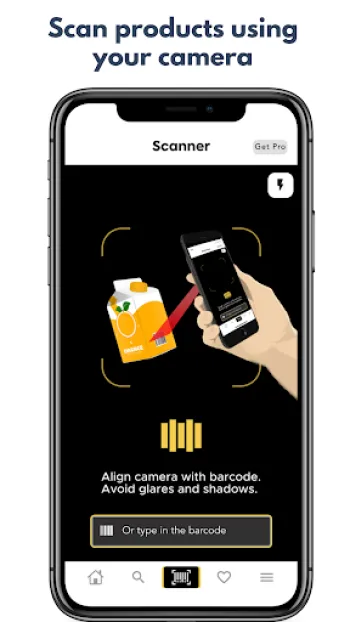
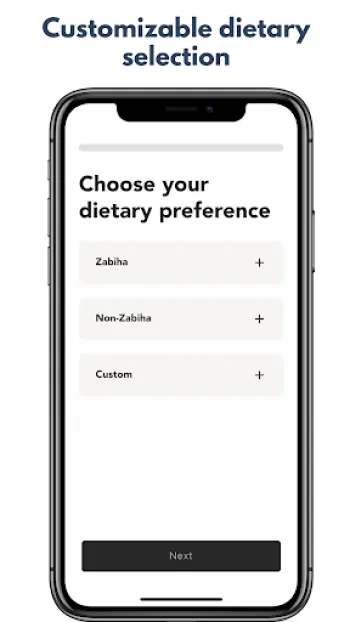
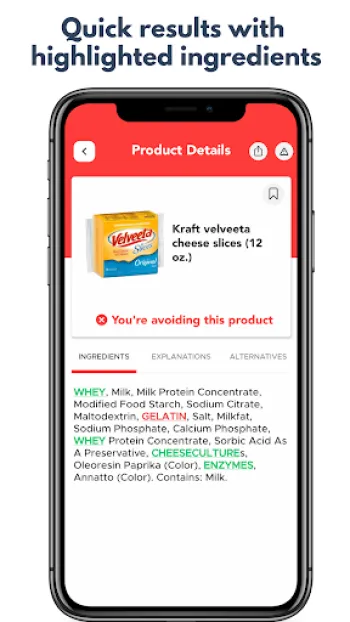
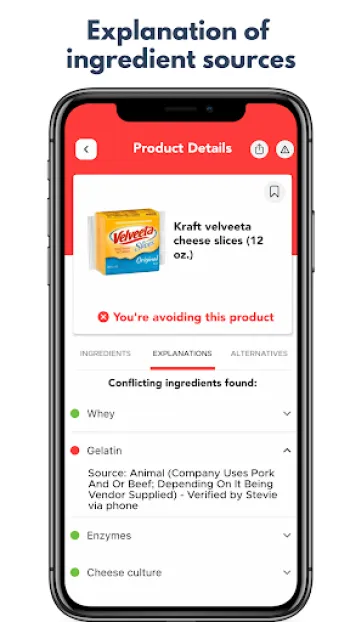
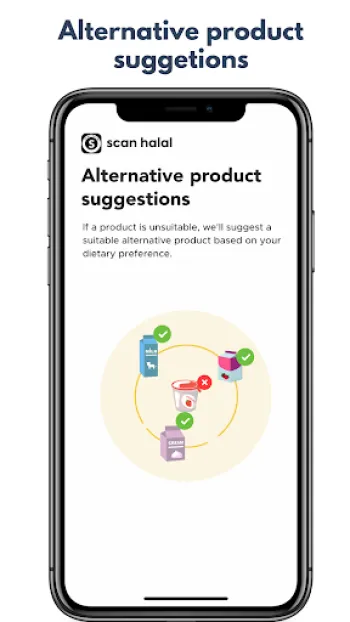
























A Google user
App no longer works. Scans were just spinning and then it would ask for my preference. I uninstalled and tried to get through the initial setup but...
Hatif Sattar
This is a very good idea and user friendly. However the actual implementation needs alot of improvements. I have only been able to successfully sca...
syed hasan
I like the app, there are a few choices out there to distinguish halal/haram items. However, hard to get responses back from the support team on em...
Anwar
3.5 stars because of the way the camera acts when taking pictures for items not in the database. Have to take photos multiple times just so the lab...
A Google user
Great idea and a great app, but to many bugs. It closes randomly and then every time you click the app it keeps closing. Also it will make me choos...